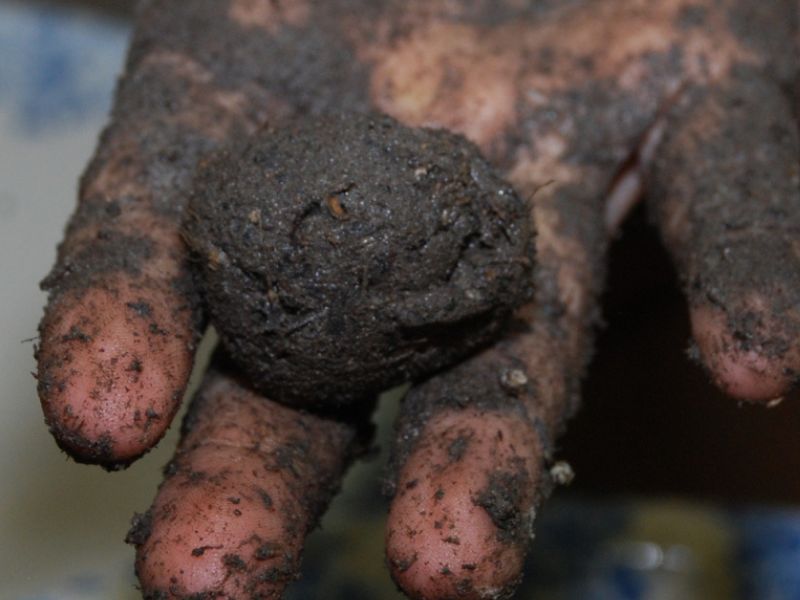From the Rotline: Are Super Dense Worm Castings Still Usable?

Yes! Thick, fudgy castings are as viable a soil amendment as finer, more granular castings. Denser castings may, however, necessitate some adaptations to traditional methods of harvest and application.
First, an important distinction: – Castings/Vermicast = Worm manure – Vermicompost = A mixture of worm castings and decomposed or partially decomposed organic matter that has not been digested by the worm.
Worm castings are naturally a more concentrated substance than other types of compost, including vermicompost. Castings are generally characterized by their dark brown color and soil-like appearance, however, color, texture, and density will vary according to the inputs and care regimen of each bin. Thick castings signify a greater density of castings to vermicompost, but very thick castings tend to be a result of allowing excess moisture to build up in the bin.
- The type of bedding used in the worm bin will affect the ultimate texture of the castings; for instance, coconut coir bedding will produce fluffier castings than shredded paper bedding.
- The moisture content of the bin is critical in determining the final consistency of the castings: lower levels of moisture (and regular aeration) will produce lighter, fluffier castings, whereas allowing excess moisture to remain in the bin will clump materials and generate heavier, denser castings.
- Clogged drainage holes are characteristic of a bin holding excess moisture. When drainage holes get stopped up with castings, standing water in the bottom of the bin causes the (highly-absorptive) castings to become very fudgy, thus making harvesting more difficult.
- Castings that are left in a bin too long (and undergo multiple instances of digestion) will become increasingly condensed. With time, this over-processing produces less nutrient-rich castings, less active worms, and can even become toxic to the worm community. If this is the case, castings should be harvested as soon as possible.
When it comes time to harvest a bin with high-density castings, drying out fudgy materials is not recommended, as the process will be time-consuming (due to the high moisture content of the castings) and will likely produce hard chunks that are difficult to mix into the soil. Instead, use your castings straight out of the bin, or consider making worm tea out of some of the castings.
Castings are generally mixed into the soil at 4:1 or 5:1 soil to compost ratio, but it is worth noting that dense castings can be mixed into soil at smaller ratios, as thick castings have a high moisture-holding capacity, but are less permeable than fluffy castings or vermicompost.
Happy Composting!
